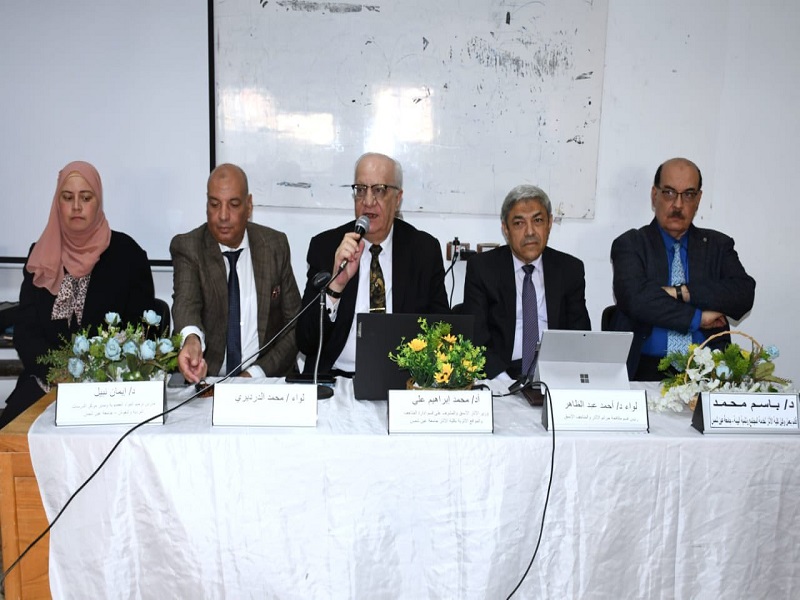“Securing Museum Collections Between Security Considerations and Exhibition Requirements” … A seminar at the Faculty of Archaeology
Ain Shams University Holds Seminar on “Securing Museum Collections Between Security Considerations and Exhibition Requirements” at the Faculty of Archaeology
The Papyrology and Inscriptions Center, in collaboration with the Department of Museum and Archaeological Site Management at the Faculty of Archaeology, Ain Shams University, held a seminar on Monday, October 13, 2025, entitled “Securing Museum Collections Between Security Considerations and Exhibition Requirements”. The event was held under the patronage of Prof. Mohamed Diaa Zain El-Abedeen, President of the University, Prof. Ghada Farouk, Vice President for Community Service and Environmental Development, and Prof. Hossam Tantawi, Dean of the Faculty of Archaeology. The seminar was organized by Prof. Basem Mohamed, Acting Vice Dean for Community Service and Environmental Development, with coordination by Dr. Iman Nabil, Director of the Center for Papyrology and Inscriptions.
The seminar witnessed wide academic attendance and significant media coverage, with the participation of a distinguished group of professors and experts in museum security, restoration, and collection management. The discussions focused on the latest concepts and practices in securing archaeological collections while meeting the requirements of modern museum exhibitions.
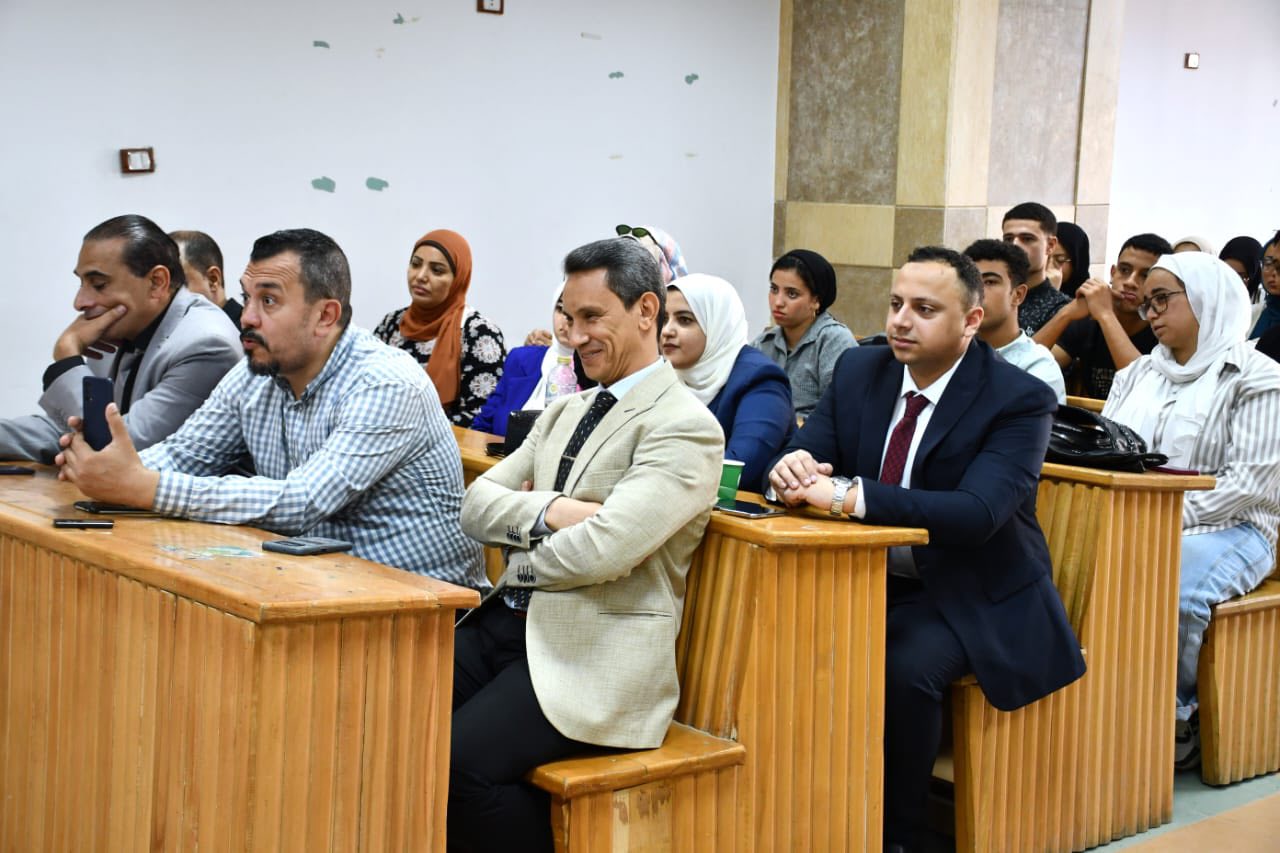 |
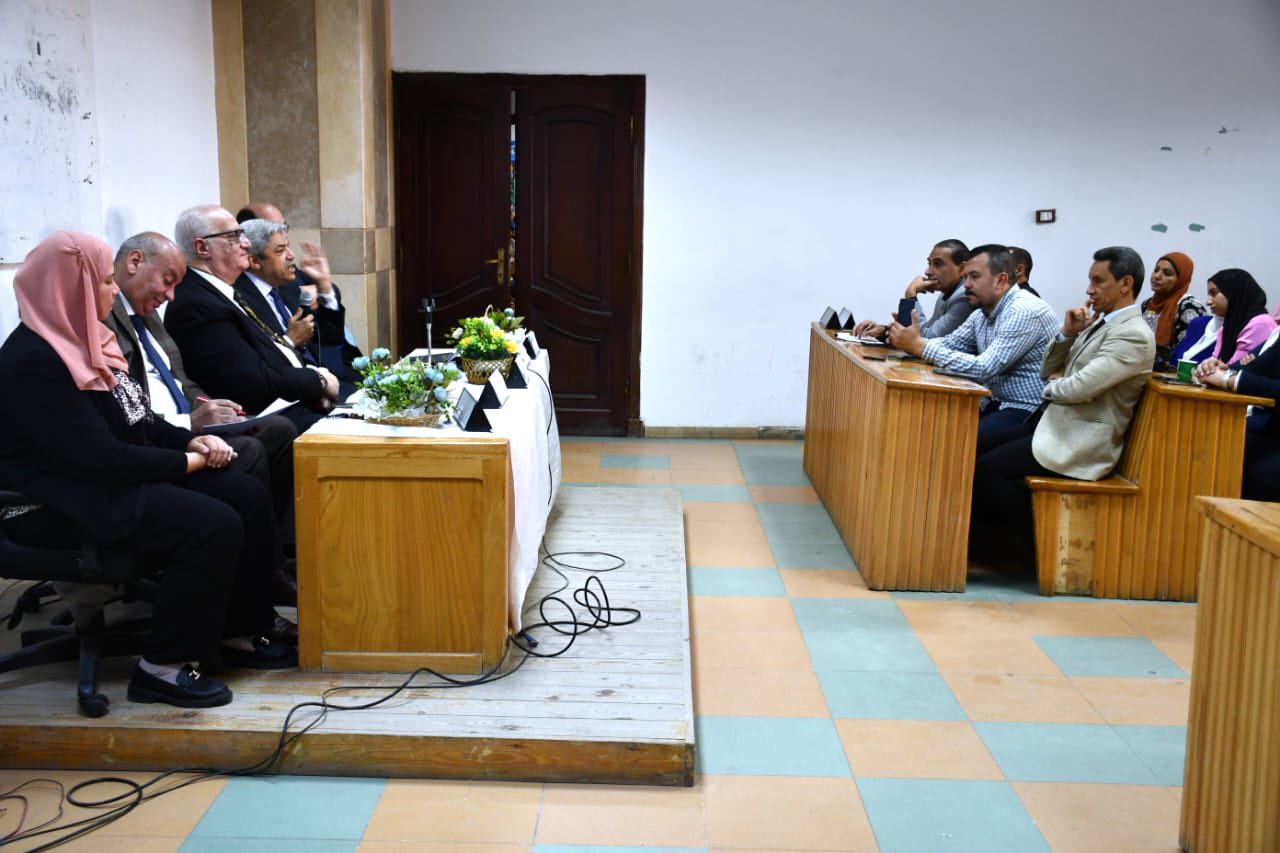 |
Prof. Hossam Tantawi, Dean of the Faculty of Archaeology, attended the workshop, emphasizing that the event aligns with the faculty’s vision to integrate scientific and security aspects in protecting Egypt’s heritage. He highlighted the faculty’s focus on training students and researchers in museum security and restoration, in line with labor market needs and field realities.
The seminar was inaugurated by Prof. Mohamed Ibrahim Ali, Head of the Department of Museum and Archaeological Site Management and former Minister of Antiquities, who emphasized that securing museum collections has become a national and scientific necessity. He explained that museum security relies on three main pillars: human security (protecting the facility, collections, staff, and visitors), technological security (surveillance, detection, and early warning systems), and administrative and organizational security, which requires clear policies for crisis management and coordination between relevant authorities.
Major General Dr. Ahmed Abdel Zaher, former Head of the Antiquities and Museums Crime Department, highlighted the importance of proactive security measures, noting that museum protection goes beyond restoration and requires effective legal and security measures.
Major General Mohamed El-Dardiri, former Director of the Antiquities Investigation Department, discussed state efforts to combat antiquities theft and smuggling, stressing the importance of collaboration between security and specialized agencies to preserve national heritage.
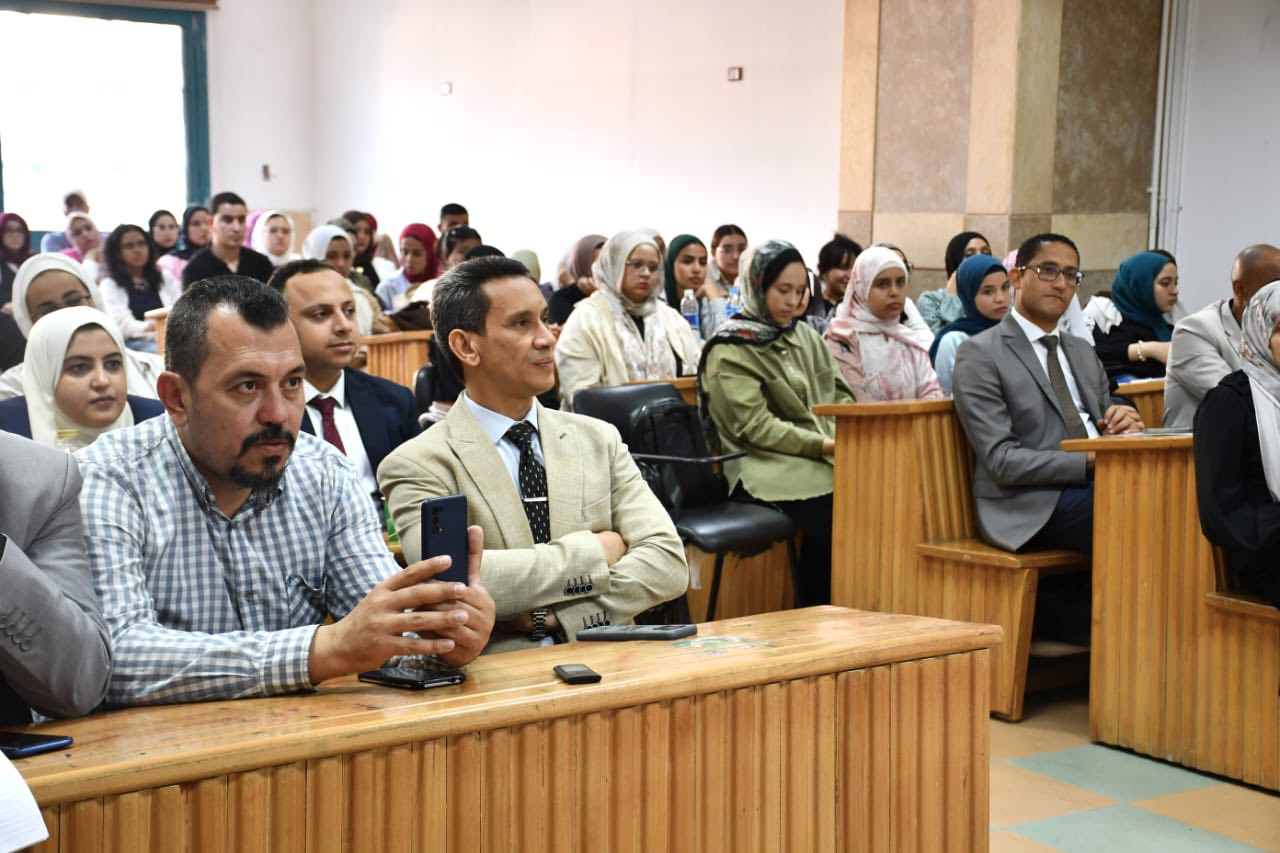 |
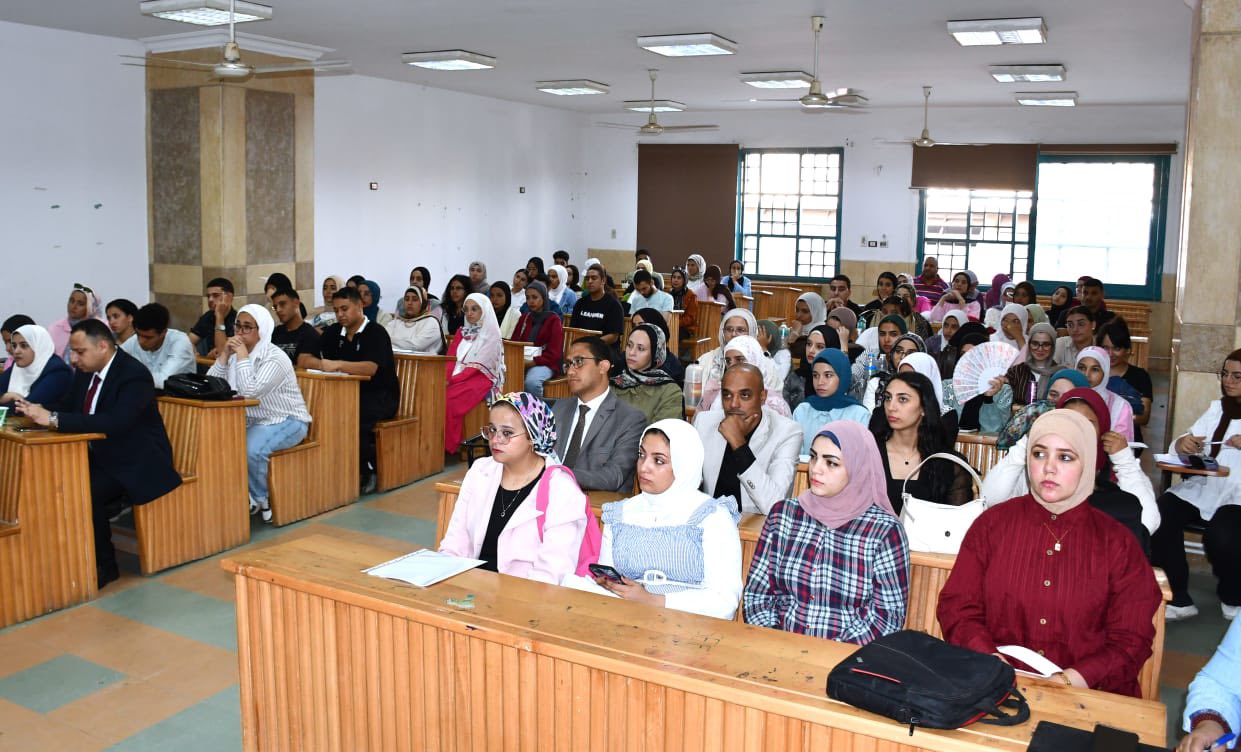 |
Dr. Mohamed Abdelsalam, Lecturer in Museum Collections Management, presented a lecture titled “Risk Management for Museum Collections: Challenges and Prospects”, outlining major threats facing museums and strategies for crisis and disaster management, drawing on successful experiences from the Egyptian Museum and several international museums.
Dr. Iman Nabil, Director of the Center for Papyrology and Inscriptions, delivered a lecture entitled “The Physical Fingerprint: A Protective Shield for Museum Collections”, highlighting the importance of modern technologies in documenting artifacts using high-resolution cameras and 3D scanning, alongside X-ray fluorescence (XRF) analysis to identify the unique physical signature of objects and protect them from forgery.
Dr. Mohamed Ismail Harb, Lecturer in Archaeological and Heritage Information Systems, discussed “Technical Methods for Securing Museum Collections”, explaining the use of electromagnetic and acoustic waves to monitor object movements and detect abnormal physical changes using advanced smart systems.
In conclusion, Prof. Basem Mohamed thanked all speakers and participants, emphasizing that the workshop represents a starting point for a series of specialized events aimed at raising awareness about the importance of museum security and supporting the integration of scientific and security measures in heritage preservation, in line with Ain Shams University’s community service role and commitment to protecting Egypt’s cultural identity.
The seminar concluded with key recommendations, including unifying efforts between academic and security institutions to establish a national strategy for securing archaeological collections, activating cooperation protocols between faculties of archaeology and security research centers in heritage protection, establishing a unified digital database to document collections using physical fingerprint and spectral analysis technologies, training museum staff in the latest security and smart monitoring techniques, and raising community awareness about the importance of protecting museum collections as part of Egypt’s cultural identity.


.svg)

